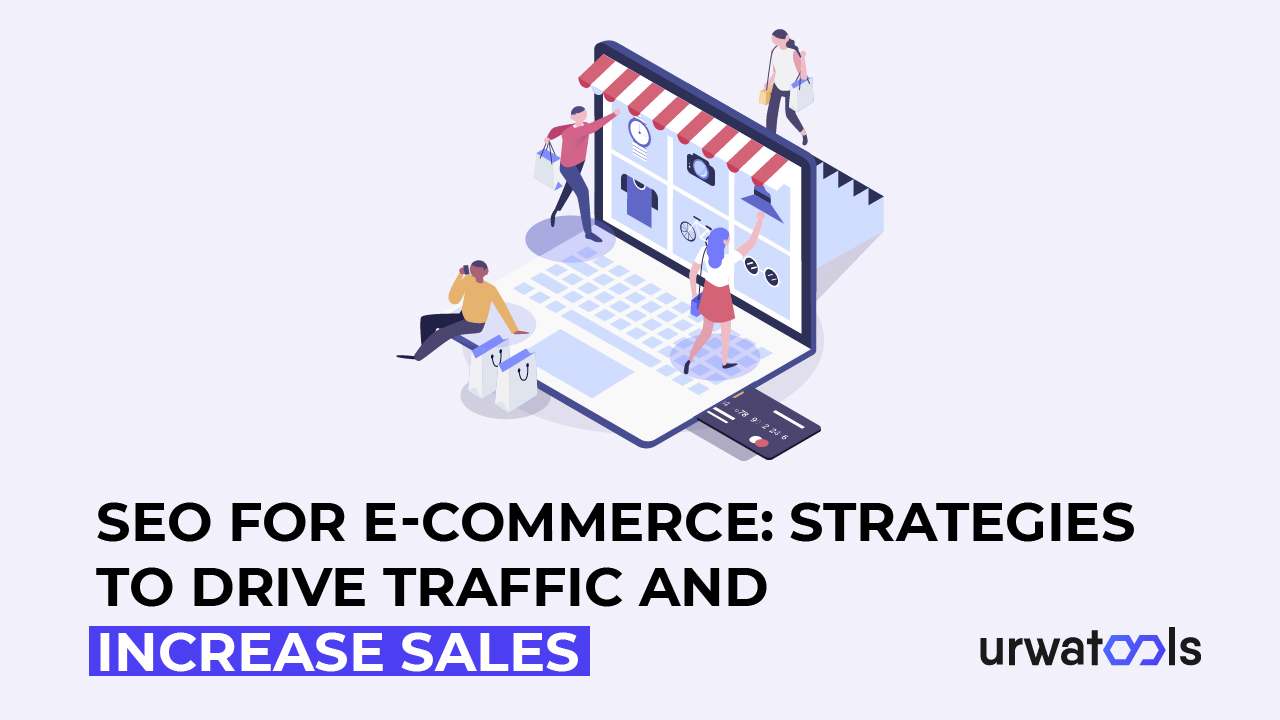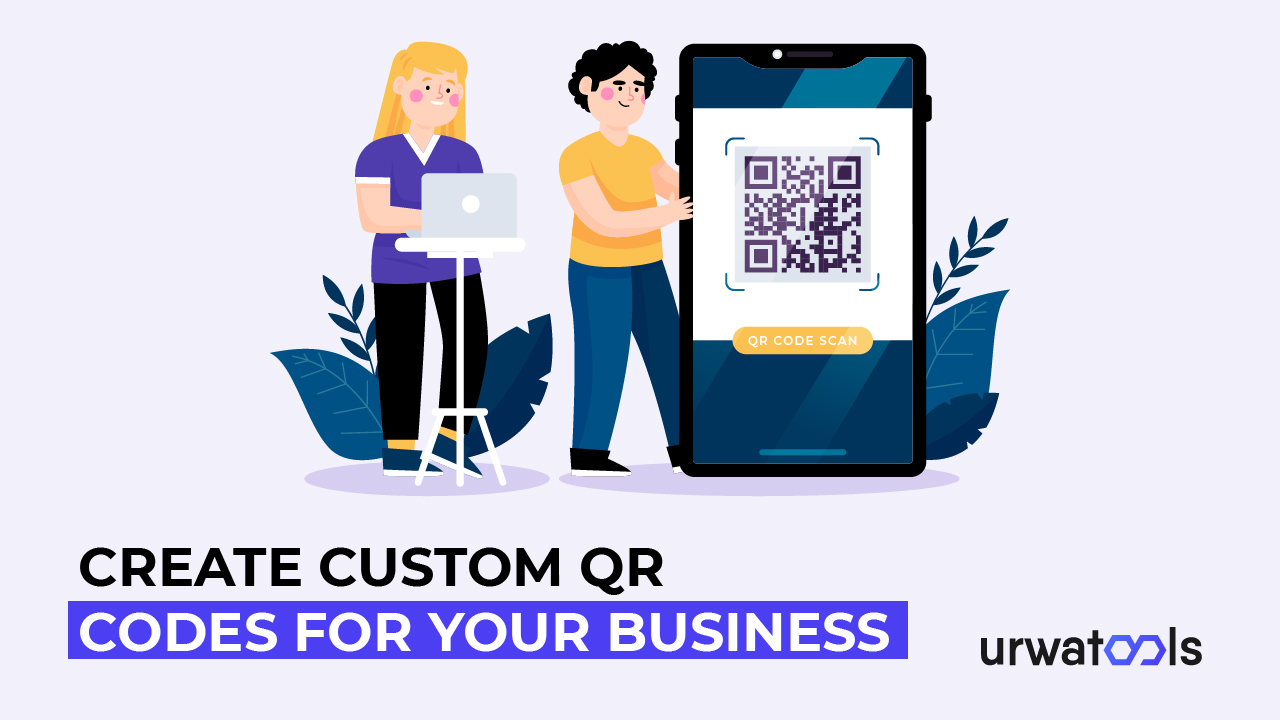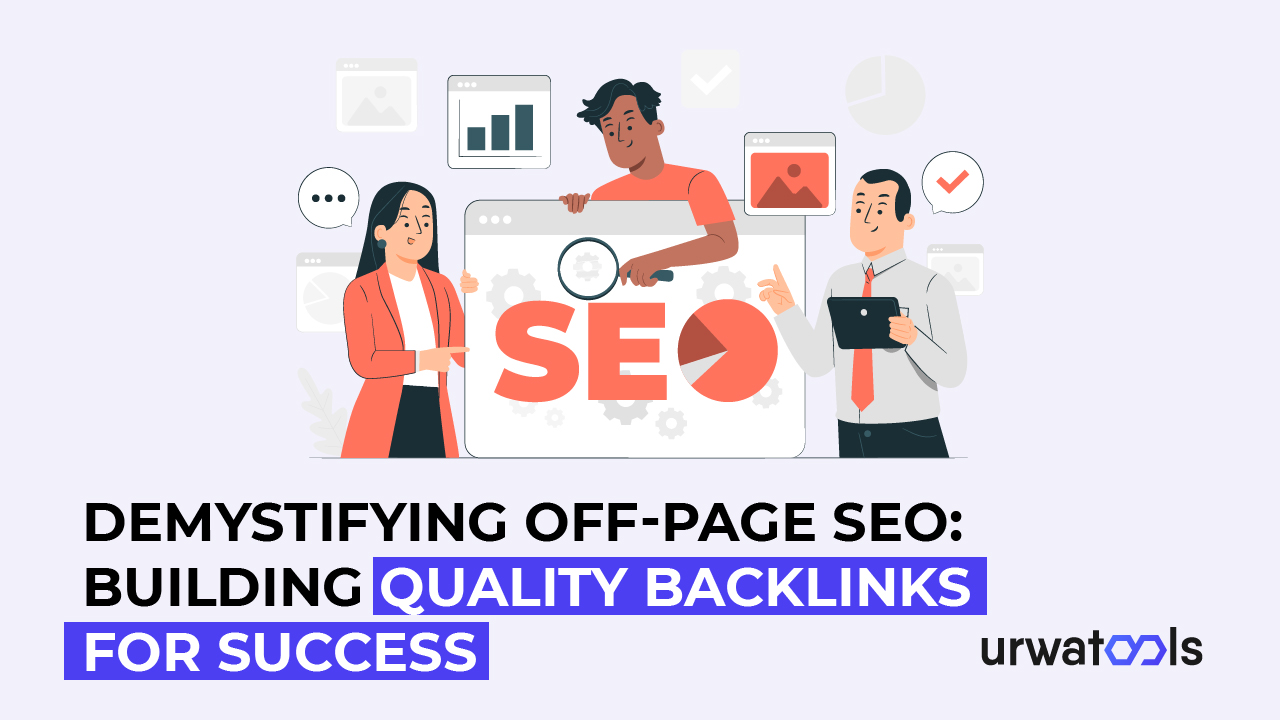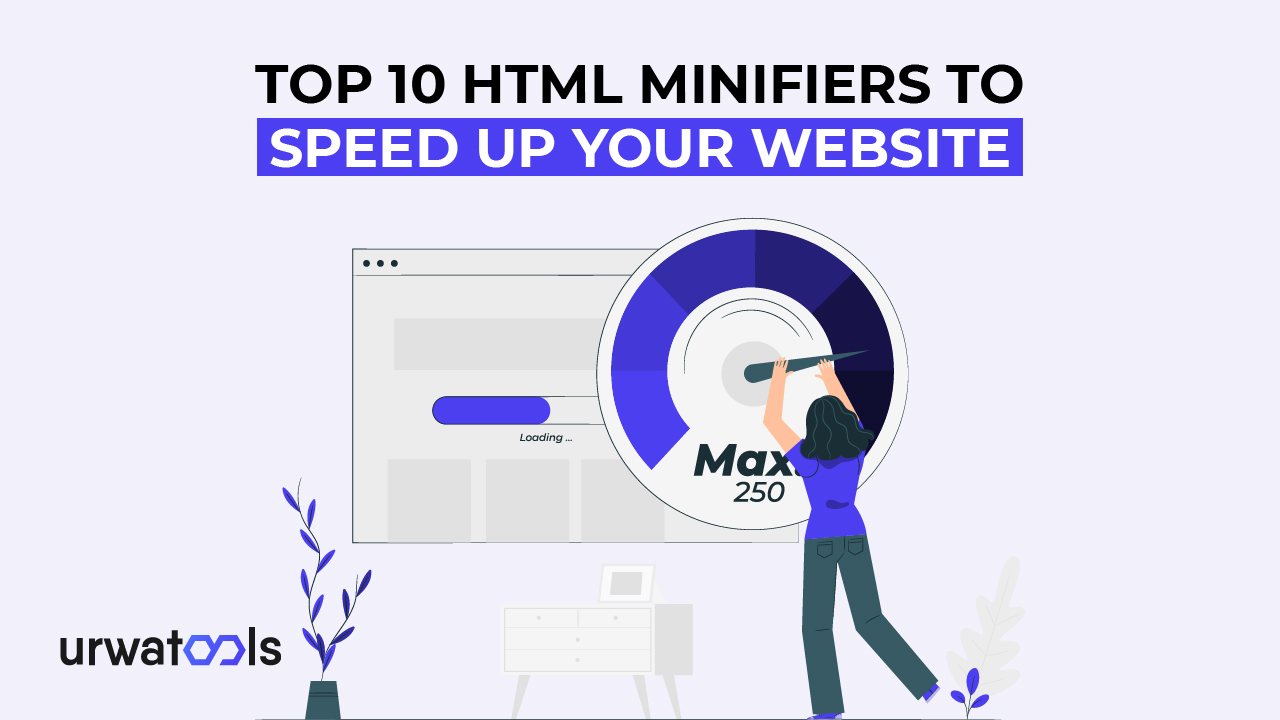تحسين محركات البحث للتجارة الإلكترونية: استراتيجيات لزيادة حركة المرور وزيادة المبيعات
يعد التواجد القوي عبر الإنترنت أمرا بالغ الأهمية لشركات التجارة الإلكترونية في العصر الرقمي اليوم. مع وجود المئات من تجار التجزئة عبر الإنترنت الذين يقاتلون من أجل جذب الانتباه ، فإن استخدام طرق فعالة لزيادة حركة المرور والمبيعات أمر بالغ الأهمية. يعد تحسين محركات البحث (SEO) أمرا بالغ الأهمية للوصول إلى هذه الأهداف.
قم بزيادة تعرضك وجذب الزوار المستهدفين وزيادة مبيعاتك من خلال تحسين موقع التجارة الإلكترونية الخاص بك لمحركات البحث. سينظر هذا المنشور في العديد من تكتيكات تحسين محركات البحث المصممة لمؤسسات التجارة الإلكترونية.
1. مقدمة
يمكنك تسليط الضوء على الشعبية المتزايدة للتجارة الإلكترونية والحاجة إلى أساليب قوية لتحسين محركات البحث لتبرز في سوق تنافسي عبر الإنترنت. التأكيد على أهمية زيادة حركة المرور والإيرادات لشركات التجارة الإلكترونية.
2. فهم كبار المسئولين الاقتصاديين التجارة الإلكترونية
يعد تحسين محركات البحث (SEO) مكونا لا مفر منه في تسويق التجارة الإلكترونية. يستلزم تحسين موقع الويب الخاص بك ومحتواه للكلمات الرئيسية ذات الصلة لتظهر أعلى في صفحات نتائج محرك البحث (SERPs).
قد تعزز مؤسسات التجارة الإلكترونية من تعرضها ، وتجذب الزوار العضويين المستهدفين ، وتحقق المزيد من المبيعات باستخدام أساليب تحسين محركات البحث الذكية. سيرشدك هذا القسم إلى أهمية تحسين محركات البحث للتجارة الإلكترونية وفوائدها ، مع تسليط الضوء على العناوين الفرعية الرئيسية لمنحك فهما شاملا.
3. أهمية تحسين محركات البحث للتجارة الإلكترونية
يلعب تحسين محركات البحث دورا مهما في نجاح شركات التجارة الإلكترونية. إليك السبب:
3.1 زيادة الرؤية
مع وجود الملايين من تجار التجزئة عبر الإنترنت الذين يقاتلون من أجل جذب انتباه العملاء ، فإن الترتيب العالي في نتائج محرك البحث أمر بالغ الأهمية. يساعد محسنات محركات البحث موقع التجارة الإلكترونية الخاص بك على ترتيب أعلى ، مما يزيد من فرص حصول العملاء المحتملين عليه عند البحث عن العناصر أو الخدمات ذات الصلة.
3.2 حركة المرور المركزة
تركز تقنيات تحسين محركات البحث الفعالة على الكلمات الرئيسية والعبارات المتعلقة بشركة التجارة الإلكترونية الخاصة بك. قد تحصل على حركة مرور مركزة للغاية من العملاء الذين يبحثون بنشاط عن عناصر أو خدمات مشابهة لمنتجاتك من خلال تحسين موقع الويب الخاص بك لهذه الكلمات الرئيسية. من المرجح أن تتحول حركة المرور المستهدفة إلى مستهلكين يدفعون.
3.3 ميزة تنافسية
قد توفر محسنات محركات البحث ميزة تنافسية كبيرة في صناعة التجارة الإلكترونية شديدة التنافسية. يمكنك توجيه المزيد من الزيارات إلى موقع الويب الخاص بك ، وتعزيز التعرف على العلامة التجارية ، ووضع شركتك كخبير موثوق به. تتم الميزة التنافسية من خلال التفوق على منافسيك في نتائج محرك البحث.
4.4 التسويق بتكلفة منخفضة
بالمقارنة مع منصات التسويق الأخرى ، مثل الإعلانات المدفوعة ، فإن محسنات محركات البحث أكثر فعالية من حيث التكلفة لدفع الزوار وتحسين الإيرادات. في حين أن تنفيذ وصيانة محسنات محركات البحث يستغرق وقتا وعملا ، فإن المزايا طويلة الأجل تتجاوز بكثير النفقات الأصلية.
4. فوائد تحسين محركات البحث للتجارة الإلكترونية
يتمتع تحسين محركات البحث (SEO) بمزايا مختلفة لمؤسسات التجارة الإلكترونية التي تهدف إلى زيادة الرؤية والإيرادات عبر الإنترنت. قد تعزز شركات التجارة الإلكترونية من تعرضها في صفحات نتائج محرك البحث (SERPs) ، وتجذب الزوار العضويين المستهدفين ، وترفع أدائها العام عبر الإنترنت باستخدام أساليب تحسين محركات البحث الذكية. سيستعرض هذا القسم أهم مزايا تحسين محركات البحث للتجارة الإلكترونية ، مع تسليط الضوء عليها بعناوين فرعية مرقمة.
ط. زيادة الرؤية
تعد زيادة التعرض في نتائج محرك البحث إحدى المزايا الرئيسية لتحسين محركات البحث للتجارة الإلكترونية. قد يؤدي تحسين موقع الويب والمحتوى الخاص بك إلى زيادة تصنيفاتك للكلمات الرئيسية والعبارات ذات الصلة. وبالتالي ، عندما يبحث الزوار عن عناصر أو خدمات مرتبطة بشركتك ، سيتم تصنيف موقع الويب الخاص بك في أعلى نتائج محرك البحث ، مما يحسن ظهوره ويجذب المزيد من العملاء المحتملين.
ii. حركة المرور العضوية المستهدفة
قد تستفيد مؤسسات التجارة الإلكترونية من تحسين محركات البحث من خلال جذب الزوار العضويين المستهدفين للغاية. يطلق على الزوار الذين يصلون إلى موقع الويب الخاص بك من خلال نتائج البحث غير المدفوعة حركة المرور العضوية. يمكنك جذب العملاء الذين يبحثون بنشاط عن عناصر أو خدمات متعلقة بخدماتك من خلال تحسين موقع الويب الخاص بك لكلمات رئيسية وعبارات معينة. نتيجة لذلك ، ستزداد المبيعات والدخل بسبب حركة المرور المستهدفة هذه.
iii. الفعالية من حيث التكلفة
SEO هو الخيار الأكثر فعالية من حيث التكلفة لمؤسسات التجارة الإلكترونية من تقنيات التسويق الرقمي الأخرى. في حين أن إشراك مستشاري تحسين محركات البحث أو الاستثمار في تقنيات تحسين محركات البحث قد يتكبد نفقات مسبقة ، فإن المزايا طويلة الأجل تفوق بكثير النفقات. على عكس الإعلانات المدفوعة ، التي تتطلب نفقات إعلانية ثابتة للاحتفاظ بالتعرض ، توفر محسنات محركات البحث حركة مرور عضوية طويلة الأجل بدون تكاليف إعلانية مستمرة.
iv. تجربة مستخدم محسنة
يعد تحسين تجربة مستخدم موقع التجارة الإلكترونية الخاص بك أمرا مهما لتحسين محركات البحث. قم بإنشاء تجربة زائر سلسة وسهلة الاستخدام من خلال تحسين بنية موقع الويب الخاص بك ، والتنقل ، وسرعة تحميل الصفحة ، وسهولة استخدام الجوال. نتيجة لذلك ، هناك المزيد من المشاركة ، وفترات زيارة أطول ، ومعدلات تحويل أكبر. تجربة المستخدم هي أيضا معيار ترتيب لمحركات البحث. وبالتالي ، فإن زيادته تزيد من فرصك في الترتيب بشكل أفضل في SERPs.
v. مصداقية العلامة التجارية والثقة بها
غالبا ما تتمتع مؤسسات التجارة الإلكترونية ذات التصنيف الأعلى بسمعة تجارية أقوى. يعتبر المستخدمون مواقع الويب القريبة من الجزء العلوي من SERPs أكثر شهرة وجديرة بالثقة. باستخدام أساليب تحسين محركات البحث الناجحة ، يمكنك تحسين سمعة علامتك التجارية عبر الإنترنت ، وإنشاء سلطة في مجالك ، وتعزيز ثقة المستهلكين المحتملين. زيادة الإيرادات وولاء العملاء ناتجة عن الثقة والمصداقية.
vi. ميزة تنافسية
يعطي SEO ميزة كبيرة في صناعة التجارة الإلكترونية التنافسية. يمكنك الحصول على المزيد من مرات الظهور والنقرات على موقع الويب الخاص بك ، والاستيلاء على حصة السوق ، وتحسين الإيرادات من خلال التفوق على منافسيك في نتائج البحث. يساعدك البحث الفعال عن الكلمات الرئيسية وتحسينها وإنتاج المحتوى وأساليب بناء الروابط على التفوق على المنافسة وتصبح الخيار المفضل للعملاء المحتملين.
سابعا- النتائج الطويلة الأجل
بينما يستغرق تحسين محركات البحث وقتا وعملا ، فإن المكافآت طويلة الأمد. على عكس الإعلانات المدفوعة ، التي تتوقف عن توليد حركة المرور بعد التوقف عن الدفع ، فإن محسنات محركات البحث تضع أساسا متينا لحركة المرور العضوية والتعرض على المدى الطويل. قد تواجه تطويرا وتعرضا مستدامين لشركة التجارة الإلكترونية الخاصة بك من خلال تطبيق أفضل ممارسات تحسين محركات البحث بانتظام ، ومراقبة تغييرات الخوارزمية والتكيف معها وتحسين موقع الويب الخاص بك.
3. البحث عن الكلمات الرئيسية لتحسين محركات البحث للتجارة الإلكترونية
يعد البحث عن الكلمات الرئيسية أمرا ضروريا لموقع التجارة الإلكترونية لتحسين محرك البحث (SEO). يستلزم تحديد الكلمات الرئيسية والعبارات الخاصة بجمهورك المستهدف للعثور على المنتجات أو الخدمات عبر الإنترنت. قد تستخدم مؤسسات التجارة الإلكترونية البحث عن الكلمات الرئيسية لتحسين محتوى موقعها على الويب ، وزيادة مواقع صفحة نتائج محرك البحث (SERP) ، وجذب الزوار العضويين المركزين. سيستعرض هذا القسم أهمية البحث عن الكلمات الرئيسية لتحسين محركات البحث في التجارة الإلكترونية ، مع تسليط الضوء على النقاط المهمة بعناوين فرعية مرقمة.
i. فهم جمهورك المستهدف
يبدأ البحث الفعال عن الكلمات الرئيسية بفهم عميق لجمهورك المستهدف. من خلال معرفة التركيبة السكانية لعميلك المثالي واهتماماته ونقاط الألم ، يمكنك تحديد كلماته الرئيسية عند البحث عن نفس المنتجات أو الخدمات. يساعدك هذا الفهم في إنشاء محتوى ملائم وجذاب يتوافق مع احتياجات جمهورك ويزيد من فرص ترتيب البحث.
ii. تحديد الكلمات الرئيسية ذات الصلة
تتمثل المرحلة الأولى من البحث عن الكلمات الرئيسية في الكشف عن الكلمات الرئيسية والعبارات ذات الصلة المتعلقة بشركة التجارة الإلكترونية الخاصة بك. يجب أن تصف هذه الكلمات الرئيسية منتجاتك أو خدماتك بشكل مناسب وتعكس أغراض المشترين المحتملين. على سبيل المثال ، قد يساعدك مخطط الكلمات الرئيسية من Google و SEMrush و Moz Keyword Explorer في تحديد المصطلحات المناسبة من خلال تقديم حجم البحث ومستوى المنافسة ومؤشرات مفيدة أخرى.
iii. الموازنة بين حجم البحث والمنافسة
يعد تحقيق التوازن بين حجم البحث والقدرة التنافسية أمرا بالغ الأهمية عند البحث عن الكلمات الرئيسية لتحسين محركات البحث في التجارة الإلكترونية. قد تبدو الكلمات الرئيسية ذات الحجم الكبير جذابة ولكن في بعض الأحيان يكون لها منافسة قوية. قد تكون الكلمات الرئيسية ذات الذيل الطويل ، والتي تكون أكثر دقة ولها حجم بحث ومنافسة أقل ، استراتيجية فعالة. تشير الكلمات الرئيسية ذات الذيل الطويل إلى نية شراء أعلى وتوفر حركة مرور أكثر تركيزا إلى موقع التجارة الإلكترونية الخاص بك.
iv. تحليل صعوبة الكلمات الرئيسية
تسمى درجة المنافسة التي ستواجهها أثناء الترتيب لمصطلح معين صعوبة الكلمات الرئيسية. يتم توفير تصنيفات صعوبة الكلمات الرئيسية بواسطة أدوات مثل Ahrefs و Moz لمساعدتك في تحديد جدوى الترتيب للكلمات الرئيسية المختلفة. من خلال تحليل صعوبة الكلمات الرئيسية ، يمكنك التركيز على الكلمات الرئيسية التي لديها إمكانية عادلة للحصول على مرتبة عالية ، نظرا لسلطة موقع الويب الخاص بك والموارد المتاحة لك.
v. اتجاهات الكلمات الرئيسية طويلة الأجل والموسمية
يجب مراعاة أنماط الكلمات الرئيسية طويلة الأجل والموسمية في البحث عن الكلمات الرئيسية. تظهر الإحصاءات طويلة المدى أن بعض العبارات تنتج أحجام بحث ثابتة. من ناحية أخرى ، تظهر الأنماط الموسمية تقلبات حركة البحث الناتجة عن أحداث أو عطلات أو مؤشرات معينة. يتيح لك فهم هذه الاتجاهات تحسين المحتوى الخاص بك واستراتيجيات التسويق لجذب الزوار خلال فترات الذروة مع الحفاظ على التعرض خلال فترات البطء.
vi. نية المستخدم ودورة الشراء
جزء مهم آخر من البحث عن الكلمات الرئيسية للتجارة الإلكترونية هو فهم نية المستخدم. دورة الشراء ضرورية لتحسين محركات البحث. تمثل الكلمات الرئيسية المختلفة مراحل دورة الشراء ، مثل المعلومات (مرحلة البحث) أو المعاملات (مرحلة الشراء). من خلال مطابقة استهداف الكلمات الرئيسية مع غرض المستخدم ودورة الشراء ، يمكنك إنتاج محتوى وتحسين صفحات المنتج التي تلبي احتياجاتهم بشكل فعال ، مما يزيد من معدلات التحويل.
vii. تحليل المنافسين
قد يعطي تحليل استراتيجية الكلمات الرئيسية لمنافسيك رؤى مفيدة حول البحث عن الكلمات الرئيسية. قد تجد إمكانيات جديدة وتعزز استهداف كلماتك الرئيسية من خلال تحديد المصطلحات التي يستهدفها منافسوك وترتيبها. قد تساعدك أدوات مثل SEMrush و SpyFu في تحديد أهم الكلمات الرئيسية لمنافسيك ، والرتب العضوية ، وحركة المرور العضوية المتوقعة.
viii. تنقيح وتحديث الكلمات الرئيسية
البحث عن الكلمات الرئيسية هو نشاط لا ينتهي أبدا. مع تطور اتجاهات البحث وسلوك المستخدم وأعمال التجارة الإلكترونية الخاصة بك ، يعد تحسين استهداف المصطلحات وتحديثه أمرا بالغ الأهمية. راقب أداء الكلمات الرئيسية ، واتبع حجم البحث وتغييرات المنافسة ، واضبط نهج تحسين محركات البحث. يمكنك الحفاظ على وجودك في نتائج البحث والبقاء في صدارة المنافسة من خلال مواكبة مؤشرات الكلمات الرئيسية. يمكنك أيضا إجراء التعديلات المطلوبة.
4. التحسين على الصفحة للتجارة الإلكترونية
4.1 علامات العنوان والأوصاف التعريفية
اشرح أهمية علامات العنوان والأوصاف التعريفية المحسنة جيدا لصفحات منتجات التجارة الإلكترونية ، مع التركيز على الكلمات الرئيسية ذات الصلة واللغة الجذابة.
4.2 تحسين وصف المنتج
ناقش أهمية أوصاف المنتج الأصلية والمثيرة للاهتمام ، مع التركيز على الاستخدام الطبيعي للكلمات الرئيسية وتقديم معلومات دقيقة تساعد العملاء في اتخاذ قرارات شراء مستنيرة.
4.3 تنظيم عناوين URL والتنقل
ناقش كيف يمكن أن يؤدي تحسين بنية عنوان URL والتنقل إلى تحسين تجربة المستخدم وإمكانية الزحف إلى محرك البحث، باستخدام مسارات التنقل والفئات المميزة وعناوين URL سهلة الاستخدام كأمثلة.
4.4 تحسين الصورة
التأكيد على أهمية تحسين الصور لمواقع التجارة الإلكترونية ، بما في ذلك استخدام أسماء الملفات الوصفية والعلامات البديلة وتنسيقات الصور المضغوطة لزيادة وقت تحميل الصفحة ورؤية محرك البحث.
5. تحسين محركات البحث الفنية لمواقع التجارة الإلكترونية
5.1 تحسين الجوال
شرح أهمية تحسين الجوال لمواقع التجارة الإلكترونية ، مع التأكيد على ضرورة التصميم سريع الاستجابة ، والتنقل المتوافق مع الجوال ، والصفحات سريعة التحميل لمنح زوار الجوال تجربة سلسة.
5.2 أداء الموقع وسرعته
ناقش أهمية سرعة الموقع على تجربة المستخدم وتصنيفات محركات البحث والحلول لتحسين أداء موقع الويب. تتضمن هذه الحلول التخزين المؤقت والتصغير وتحسين وقت استجابة الخادم.
5.3 ترميز البيانات المنظمة
شرح ترميز البيانات المنظمة وفوائده لتحسين محركات البحث في التجارة الإلكترونية، مع التركيز على ترميز schema.org لتحسين رؤية محرك البحث والسماح بالمقتطفات المنسقة.
5.4 Robots.txt وخريطة موقع XML
شرح أهمية خرائط مواقع XML وملفات robots.txt في توجيه برامج زحف محركات البحث وكيفية تطويرها وتحسينها لمواقع التجارة الإلكترونية.
6. استراتيجية محتوى التجارة الإلكترونية
6.1 إنشاء أوصاف فريدة وجذابة للمنتج
ناقش أهمية أوصاف المنتج المكتوبة جيدا والتي تسلط الضوء على ميزات البيع الفريدة لكل منتج ومزاياه واستراتيجياته لإنشاء نسخة جذابة تتواصل مع الجمهور المستهدف.
6.2 التجارة الإلكترونية والمدونات
ناقش كيف يمكن للتدوين لموقع التجارة الإلكترونية أن يعزز حركة المرور العضوية ، ويعزز نتائج محرك البحث ، ويضع الشركة كشركة رائدة في الصناعة.
6.3 المحتوى الذي ينشئه المستخدم
التأكيد على قيمة المواد التي ينشئها المستخدمون ، مثل مراجعات العملاء والشهادات والتفاعلات على وسائل التواصل الاجتماعي ، في خلق الثقة وزيادة التحويلات وتحسين محسنات محركات البحث لمواقع التجارة الإلكترونية.
7. بناء روابط خلفية عالية الجودة
7.1 التواصل مع المؤثرين ونشر الضيوف
ناقش مزايا تدوين الضيوف على مواقع الويب الموثوقة والعمل مع قادة الصناعة. بالإضافة إلى ذلك ، ناقش طرق الحصول على روابط خلفية عالية الجودة تزيد من نتائج محرك البحث.
7.2 الترويج على وسائل التواصل الاجتماعي
اشرح كيف يمكن لمؤسسات التجارة الإلكترونية الاستفادة من تبني منصات التواصل الاجتماعي لزيادة التعرف على العلامة التجارية وجذب الجماهير المتفاعلة وإنتاج روابط خلفية ذات مغزى.
7.3 أدلة وقوائم الأعمال التجارية عبر الإنترنت
ناقش كيف يمكن أن تستفيد مؤسسات التجارة الإلكترونية من إدراجها في أدلة الويب وقوائم الشركات ذات الصلة وكيف تعزز هذه الاستشهادات محسنات محركات البحث المحلية وتجذب الزوار المستهدفين.
7.4 ملاحظات العملاء والشهادات
ناقش مدى تأثير مراجعات العملاء وشهاداتهم المفيدة على نتائج محرك البحث والتحويلات والتكتيكات لتشجيع العملاء السعداء على نشر المراجعات والشهادات.
8. تجربة المستخدم وتحسين التحويل
8.1 تصميم موقع سهل الاستخدام
اشرح أهمية تصميم موقع الويب سهل الاستخدام الذي يركز على التنقل البسيط ، والعبارات الواضحة التي تحث المستخدم على اتخاذ إجراء ، وواجهات المستخدم البديهية ، مما يعزز تجربة المستخدم الإجمالية ومعدلات التحويل.
8.2 دعوات قوية للعمل
ناقش أهمية العبارات المرئية والمقنعة التي تحث المستخدم على اتخاذ إجراء (CTAs) على مواقع التجارة الإلكترونية وأفضل الممارسات لبناء عبارات تحث المستخدم على اتخاذ إجراء ناجحة تلهم الزوار للقيام بالأنشطة المطلوبة.
8.3 تحسين عملية الدفع
ناقش التكتيكات مثل بدائل تسجيل خروج الضيف والنماذج المبسطة وخيارات الدفع العديدة للتأكيد على أهمية تبسيط عملية الدفع وتقليل الاحتكاك لزيادة التحويلات إلى أقصى حد.
8.4 التخصيص والاقتراحات
قدم أمثلة على أساليب التخصيص الفعالة لمؤسسات التجارة الإلكترونية لتوضيح كيف يمكن لتقنيات التخصيص وتوصيات المنتجات تحسين تجربة المستخدم ورفع متوسط قيمة الطلب وتعزيز عمليات الشراء المتكررة.
9. تحسين محركات البحث المحلية لشركات التجارة الإلكترونية
9.1 تحسين الكلمات الرئيسية المحلية
ناقش أهمية تحسين محركات البحث المحلية لمؤسسات التجارة الإلكترونية التي ترغب في استهداف مواقع جغرافية محددة وتكتيكات لتحسين محتوى موقع الويب والقوائم للحصول على ترتيب أفضل في نتائج البحث المحلية.
9.2 قوائم الأعمال المحلية
ناقش كيف أن وضع مؤسسات التجارة الإلكترونية في أدلة الأنشطة التجارية المحلية يعزز التعرض المحلي ويزيد من احتمالات الظهور في حزمة Google المحلية.
9.3 تحسين نشاطي التجاري على Google
شرح مزايا تحسين الملفات الشخصية في "نشاطي التجاري على Google" لمؤسسات التجارة الإلكترونية، مع التأكيد على الحاجة إلى محتوى متسق ودقيق وتقييمات العملاء والتحديثات المتكررة.
10. قياس وتتبع أداء كبار المسئولين الاقتصاديين
10.1 تحليلات جوجل وSearch Console
شرح كيفية تكوين واستخدام Google Analytics و Google Search Console لتتبع فعالية مبادرات تحسين محركات البحث للتجارة الإلكترونية ، مع التأكيد على ضرورة تتبع المقاييس الهامة مثل حركة المرور العضوية ومعدلات التحويل وتصنيفات الكلمات الرئيسية.
10.2 تحديد الأهداف وتتبع التحويل
ناقش كيفية استخدام Google Analytics لإعداد أهداف التحويل لتتبع معاملات التجارة الإلكترونية وعمليات إرسال النماذج والإجراءات الرئيسية الأخرى ، وتقديم إحصاءات حول تحسين التحويل وتحليل عائد الاستثمار.
10.3 تتبع مواضع الكلمات الرئيسية وحركة المرور
مناقشة طرق وأساليب تحليل مواضع الكلمات الرئيسية وإيجاد فرص التحسين. بالإضافة إلى ذلك ، ناقش أهمية مراقبة تصنيفات الكلمات الرئيسية وأنماط حركة المرور العضوية لمواقع التجارة الإلكترونية.
11. التحسين المستمر لكبار المسئولين الاقتصاديين
11.1 عمليات تدقيق منتظمة للموقع
سلط الضوء على ضرورة عمليات تدقيق مواقع الويب المتكررة للكشف عن مشكلات تحسين محركات البحث ، وتحسين المحتوى الحالي ، والبقاء على اطلاع دائم بتحديثات خوارزمية محرك البحث. بالإضافة إلى ذلك ، نقدم قائمة مرجعية لإجراء عمليات تدقيق كاملة لتحسين محركات البحث.
11.2 مواكبة اتجاهات تحسين محركات البحث
ناقش أهمية أن تكون على اطلاع دائم باتجاهات تحسين محركات البحث وتطورات الصناعة. التأكيد على تقنيات التعديل وقبول التكنولوجيا المتطورة للحفاظ على ميزة تنافسية.
11.3 تجريب مناهج جديدة
شجع مؤسسات التجارة الإلكترونية على اختبار أساليب وتقنيات تحسين محركات البحث المختلفة ، مثل تحسين البحث الصوتي ، وتحسين محركات البحث للفيديو ، وترقيات البيانات المنظمة ، لإيجاد طرق مبتكرة لتوليد حركة المرور وزيادة المبيعات.
12. خاتمة
التأكيد على ضرورة تنفيذ تقنيات تحسين محركات البحث الفعالة لمؤسسات التجارة الإلكترونية لجذب حركة المرور المستهدفة وتعزيز الرؤية وزيادة المبيعات من خلال تلخيص الموضوعات المهمة المذكورة في جميع أنحاء المقالة. تسليط الضوء على الطبيعة المستمرة لكبار المسئولين الاقتصاديين وضرورة التكيف مع الاتجاهات والخوارزميات المتغيرة.







